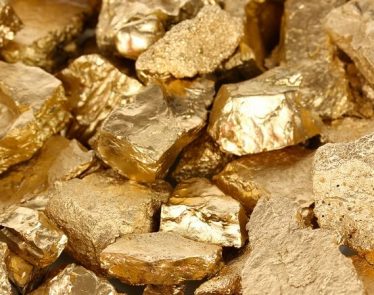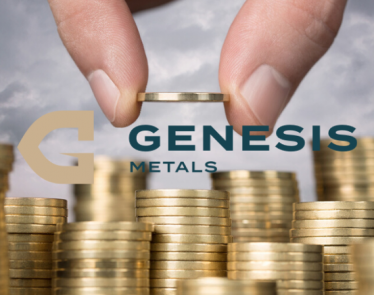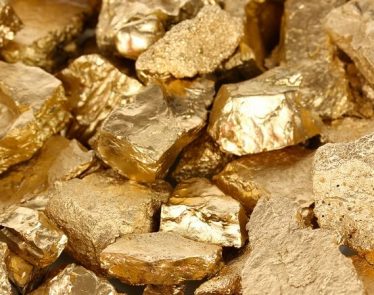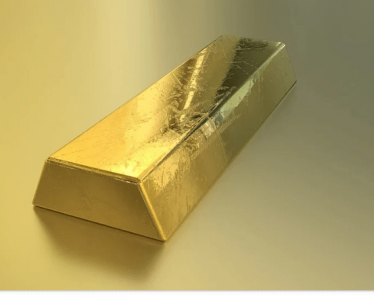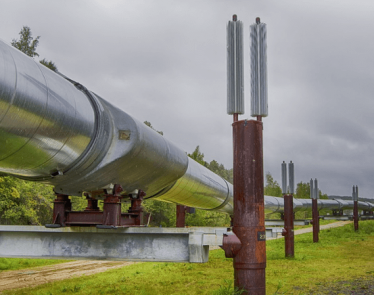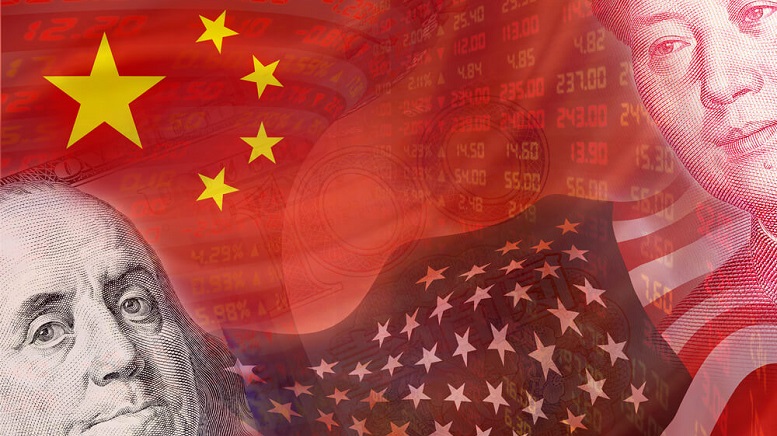
Hopes of a timely end to Trump’s trade war with China have been dashed, leading more and more analysts to come to terms with the fact that this will be a protracted economic quagmire. While the world’s two largest economies continue to square up, industries caught in the middle of the international spat, like tech, auto, and agriculture, are struggling to stay afloat amidst a sea of tariffs.
Just take a look at copper. Traditionally understood to be a barometer for trade wars, the price of copper has recently fallen to a two-year low. According to The Steven Report’s Tom Essaye, “The summer breakdown in copper suggests that volatility will remain a major theme in the markets in H2′19, and the odds of a recession are steadily rising.”
But one subsector that isn’t suffering is rare earth metals. Some companies have actually been benefiting from the trade war.
In May, Chinese President Jinping insinuated that banning rare earth metals would be just the right way to strike back at his American frenemy. Though the ban would cause Chinese mining companies to lose a lot of revenue, it would also wreak significant havoc on the US economy. The move is even being considered by some analysts to be a national security threat.
Let’s take a look at what rare earth metals are, why they’re so important, and which companies stand to gain significant profits from a battle between two superpowers.
Rare Earth Metals are a Trade War Cudgel
Despite their name, rare earth metals aren’t uncommon in nature. Rather, they are rarely found in concentrations high enough to justify the significant costs of mining and processing them. They are also a necessary component in products like wind power generators, energy-efficient appliances, smartphones, and a host of other technologies that are becoming crucial to our lives.
China has provided the US with 80 percent of its rare earth metals since the late ’90s. Not only that, the nation processes all the ore produced at the only American rare earth mine, the Mountain Pass project.
Because it has no plans of stopping its trade war with China, the US will need to rely on other countries to supply its rare earth. Surely this is nothing but good news for rare earth companies, right?
>> JCP Stock Hits New Lows: Is it Time to Take Action?
Well, the world’s largest such company outside of China, Australian-based Lynas Corp (ASX: LYC), has reported a 4.6 percent fall in revenue over the last quarter. Since the trade war turned ugly, Lynas has had to stockpile its production output, keeping a sort of “rainy day” fund for its most important clients.
The Trade War Could Benefit These Rare Earth Companies
On the other hand, Canadian small-cap rare earth company Neo Performance Materials Inc. (TSX:NEO) has been able to casually avoid much of the trade war turbulence, despite the fact that three of its five largest processing plants are based in China. According to the company’s CEO, this is because Neo only sells 5 to 10 percent of its output to the US.
The company’s stock has remained steady throughout the trade war, around the $12.00 mark. A recent conference call revealed that the company made more than $100 million in the last three months.
Meanwhile, Canada Rare Earth (TSXV:LL) (OTCPK:RAREF) CEO Tracy A. Moore made a point to say that her company is “encouraged by recent interest in the rare earth industry” and that Canada Rare Earth looks forward to the market’s greater recognition of alternatives to Chinese suppliers.
Greater interest has caused the company’s share price to rise steadily over recent years, reaching its highest point this past May at $0.105. This coincides with news about the escalation of the trade war with China.
Ucore Rare Metals Inc. (TSXV:UCU) (OTCQX:UURAF) even went so far as to celebrate Trump’s recent defense of rare earth elements. Invoking a Korean war-era law, Trump issued a determination that labeled domestic rare earth processing capabilities “essential to national defense.”
The chairman of Ucore said his company is “well-positioned to satisfy the needs of U.S. defense and commercial markets by installing [Rare Earth Elements] separation and processing capabilities in Alaska.” Ucore’s Alaskan property includes the Bokan-Dotson Ridge Rare Earth Project, which contains the highest-grade of heavy rare earth elements on US soil.
>> Endo Stock Surges 17% Following Settlement Agreement
Trump’s decision may be the reason why Ucore stock saw an 84.38 percent increase on the TSX the week of the announcement. The company’s share price now sits comfortably around $0.20.
Industry Projections as the Trade War with China Drags On
According to business consulting firm Frost & Sullivan, the global market growth for rare earth materials will be up $5.40 billion between the years 2018 and 2025. That represents a robust CAGR of 7.0 percent.
Japan, Korea, Brazil, Australia, and Western Europe are all seeing an increased demand for rare earth metals. This means that, before long, companies may be able to rely entirely on markets outside of China for the extraction, manufacturing, and selling of rare earth materials and rare earth-derived products.
In 2010, when Japan nationalized the Senkaku Islands, China responded by stopping its flow of rare earth materials to China. Since then, Japan has had to increasingly rely on Australia to make up for the shortfall. Now Japan spends roughly $260 million importing 30 percent of its rare earth metals from Australia.
It’s no surprise, then, that a coalition of Japan, Australia, and the US is hoping to definitively break China’s dominance of the rare earth process chain. All three nations are supporting Lynas Corp in the construction of a rare earth metals separating plant in Texas. This facility will begin operating in 2021, which still leaves plenty of time for China to use rare earth materials as a weapon in the ongoing trade war.
When the trade war with China will come to an end—and which industries will ultimately be left in its wake—are questions that, for the immediate future, will remain unanswered. For investors, there aren’t many safe ports in this storm, though rare earth companies may just be one of them.
Still, in a volatile market like this, there’s no telling what goods will be tariffed next. Make sure to do your research—and cross your heart—before jumping in.
>> Read More Metals & Mining News
Featured image: DepositPhotos © wisitporn





